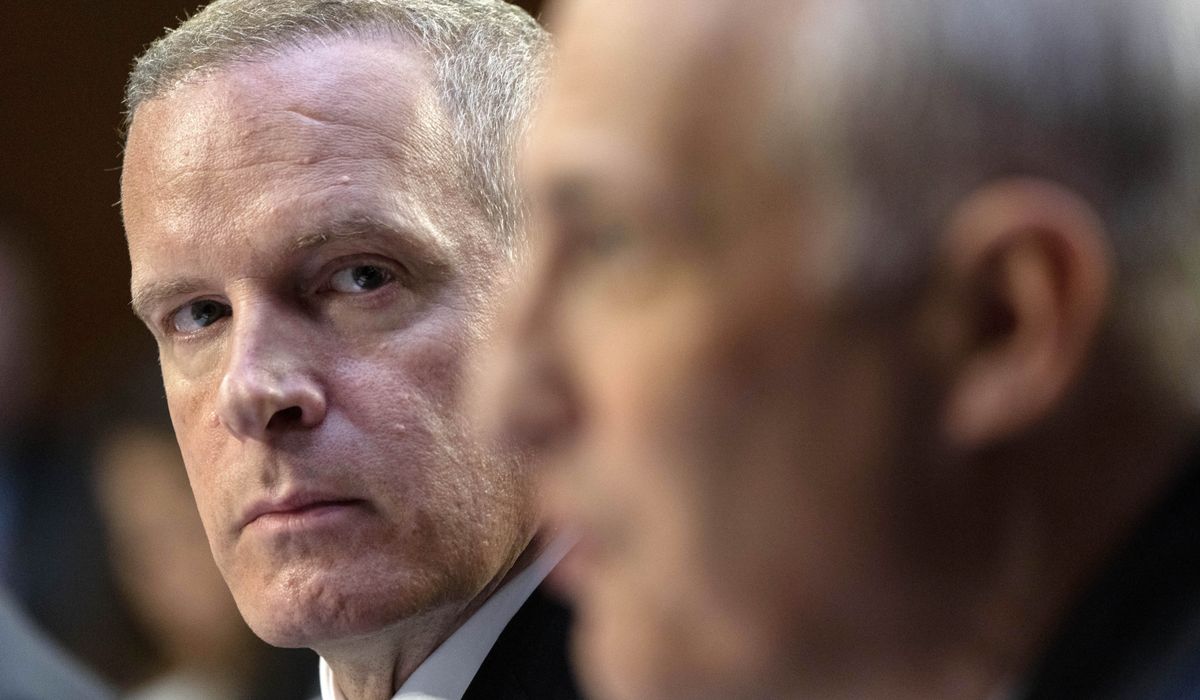Whistleblower: FBI threatened to fire agents who criticized emphasis on Jan. 6 investigations

An FBI whistleblower has revealed to Congress that Deputy Director Paul Abbate threatened to fire agents and other bureau employees who said there were disparities in the responses to the U.S. Capitol riot in 2021 and the George Floyd riots in 2020.
In an affidavit delivered to Congress, the unnamed FBI worker said Mr. Abbate made the threats during a secured video teleconference with the special agents in charge of the bureau’s 56 field offices. Mr. Abbate told these supervisors that some agents were questioning the massive investigative response to pro-Trump demonstrators storming the Capitol on Jan. 6, 2021.
“Abbate told the audience that anyone who questions the FBI’s response or his decisions regarding the response to Jan. 6 did not belong in the FBI and should find a different job — or something to that effect,” according to the affidavit.
In a letter accompanying the affidavit, the whistleblower’s lawyer, Tristan Leavitt, explained: “Abbate had heard that some employees were contrasting the FBI’s response to Jan. 6 with its failure to protect federal personnel and property, or to aggressively investigate interstate conspiracies and resulting damage, during the civil unrest after the murder of George Floyd in 2020.”
Mr. Leavitt said that Mr. Abbate followed through with his threats, as is also alleged by other FBI employees who lost their jobs.
The Washington Times, which reviewed the affidavit and the letter, asked the FBI for comment but did not hear back.
The affidavit and the letter were recently delivered to the House Judiciary Committee, the Senate Judiciary Committee, the Senate Whistleblower Protection Caucus and Justice Department Inspector General Michael Horowitz.
It is among a recent flood of FBI whistleblowers who have alerted Congress to politically motivated investigations, biased leadership and misconduct by senior officials at America’s premier law enforcement agency.
According to this latest whistleblower affidavit, Mr. Abbate told the special agents in charge that the bureau’s response to the Capitol riot was consistent with the response to the Summer 2020 riots.
“He argued that the FBI was applying all appropriate resources in each situation,” the whistleblower said of Mr. Abbate’s directive in the secure teleconference, known as a Director SVTC in FBI lingo.
According to the affidavit, Mr. Abbate said that if an FBI agent did not agree with management’s view of the response, the agent should call him personally, and he would set them straight.
“I have witnessed hundreds of Director SVTCs and have never seen a direct threat like that any other time. It was chilling and personal, communicating clearly that there would be consequences for anyone that questioned his direction,” the whistleblower said.
Mr. Leavitt said in his letter to congressional lawmakers and Mr. Horowitz that “Abbate’s threat to employees was witnessed by numerous other FBI employees and constitutes evidence of intent to retaliate against any dissent. … This evidence can be independently corroborated by dozens, if not hundreds, of other FBI employees.”
The law enforcement response to the Jan. 6 Capitol riots and the 2020 summer riots has long been scrutinized.
The FBI deployed vast resources in hunting down Jan. 6 rioters who stormed the Capitol and disrupted Congress’ certification of President Biden’s election win.
More than 1,033 of the Jan. 6 rioters have been arrested, with about 485 convicted of various crimes. Of those convicted, about 277 were given jail time and roughly 113 were sentenced to a period of home confinement.
The median sentence for those getting jail time is about 60 days, according to an analysis by National Public Radio.
The longest prison sentence so far was given to Oath Keepers leader Stewart Rhodes, who got 18 years for seditious conspiracy. Others got long prison sentences, including a retired New York City police officer who was given 10 years in prison for assaulting a police officer outside the Capitol.
The Capitol riot resulted in the deaths of four people, all of them pro-Trump demonstrators: Ashli Babbitt, 35, was shot and killed by a U.S. Capitol Police officer; another woman died of a drug overdose; and two men died of natural causes. Many people were injured during the riot, including 138 police officers.
In 2020, about 570 demonstrations turned into riots in various cities between May 24 and Aug. 22, according to the Armed Conflict Location & Event Data Project. The 2020 riots resulted in an estimated $2 billion in property damage and at least 25 deaths.
An Associated Press review of court documents in more than 300 federal cases stemming from the violent protests in 2020 shows more than 120 defendants were convicted of federal crimes including rioting, arson and conspiracy.
By August 2021, more than 70 defendants were sentenced to an average of 27 months behind bars. At least 10 got prison terms of five years or more.
In Portland, Oregon, which suffered nightly riots for several weeks, the rioters received significant leniency. Federal officials regularly accepted deals that dropped charges as long as someone completed community service, according to a Washington Times review of court records.
The Portland violence in 2020 included protesters blinding officers with lasers, battering police with hammers, bats and bottles, and hurling Molotov cocktails at police and the federal courthouse.
One man who fired a gun at the courthouse on the evening of Jan. 8, 2021 — two days after the Capitol riots in Washington — escaped without a prison sentence and got five years’ probation.

